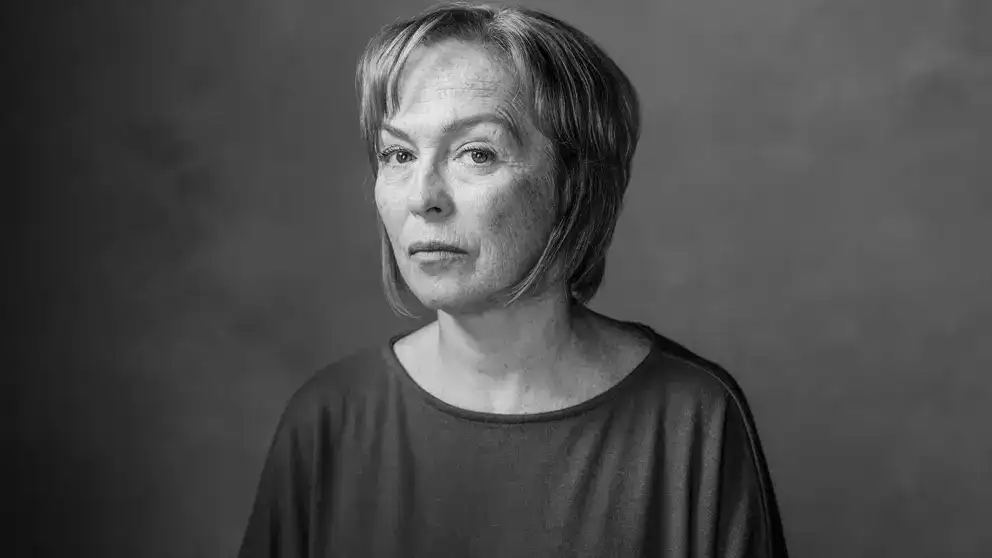Karen Narraway was running on a treadmill in a cardiologist’s office. The 52-year-old registered nurse was doing a stress test to help determine why her heart would sometimes race, especially when she was lying in bed.
As sensors measured Karen’s blood pressure and heart rhythm, the technician suddenly told her to stop running. Her heart rate was getting too high, and she was gasping for breath.
After the cardiologist reviewed the test results, she told Karen her heart appeared strong and healthy. The fast heart rate was likely due to anxiety.
That was 2015. Karen’s family doctor had referred her to the cardiologist and other specialists to check out a range of symptoms she was experiencing, including the racing heart as well as pain in her left arm. Their answers included menopause, arthritis and carpal tunnel as well as anxiety – but no heart disease.
Karen began to experience chest pain over the next months and wondered if it could be angina. It got so bad she went to emergency. The verdict was the same: anxiety.
Karen was skeptical. “The only thing I was anxious about was the chest pain I was having.” But she wanted to believe there was nothing wrong with her heart. So she went home again, equipped with nitroglycerin to spray under her tongue in the event of more chest pain.
As her chest pain increased, Karen had another stress test. This time, the doctor sent her straight to hospital, where further testing revealed six major blockages in her arteries. Within a few days, she had quadruple bypass surgery.
Problem: Mental health impacts make a tough road harder
Karen’s story doesn’t surprise Dr. Paula Harvey, director of cardiovascular research at Women’s College Hospital in Toronto. One study showed that women who mention stress along with physical symptoms of cardiac disease are much more likely to be diagnosed with anxiety than men reporting exactly the same thing. But delays in diagnosis can be fatal.
Meanwhile, many women are not screened for depression after a diagnosis of heart disease or stroke. That’s another big oversight.
Depression strikes twice as many women as men.
Depression strikes women with heart conditions nearly twice as often as men. It increases the risk of a heart attack. It increases the chances that an attack will be fatal. And for survivors, it slows recovery.
According to Dr. Harvey’s research, nearly 40% of female patients experience depression after a cardiac event — and more than half of those have moderate or severe symptoms.
Karen is a prime example. In the months after her bypass, she struggled with symptoms of post-traumatic stress disorder (PTSD). She felt exhausted and depressed and barely held things together at work. “I felt like my life had changed completely and abruptly,” she explains. “Although everyone was kind and caring, no one really understood.”
More awareness and better screening
Guidelines used by healthcare providers — including the Canadian Stroke Best Practices led by Heart & Stroke —recommend that heart attack and stroke survivors be screened for depression. Thanks to significant efforts in implementation and monitoring, those recommendations are being followed in more healthcare settings.
However, in Dr. Harvey’s study of women with heart disease, less than half of those with moderate or severe depression were getting treatment.
That needs to change, she says. She also sees a big need for more research into effective treatments.

It’s really important that women are heard.
And then there’s the underlying question: Why is depression such a big risk factor for heart disease and stroke? Is it related to hormones? Neurotransmitters? Inflammation? Or does depression lead to other risk factors, like more smoking or a poor diet? Only through these answers can we start to address the disproportionate impact on women.
Despite the knowledge gaps, Dr. Harvey is upbeat. She points to a groundswell of new research on the connections between the brain and heart — from lab-bench experiments to large-scale epidemiological studies — that will lead to better screening, diagnosis and treatments.
“I think it's a pretty exciting time with so many different opportunities,” she says. “We are definitely making significant progress.”
Now 56, Karen is monitored closely by her cardiologist. Further blockages have appeared since her surgery, but she has learned that her blood vessels are too small to be treated with stents or more bypass surgery.
She manages her angina with medication. “At this point I'm just trying to keep myself strong and I'm exercising pretty much every other day right now.”
- Learn more about women, heart disease and stroke.
